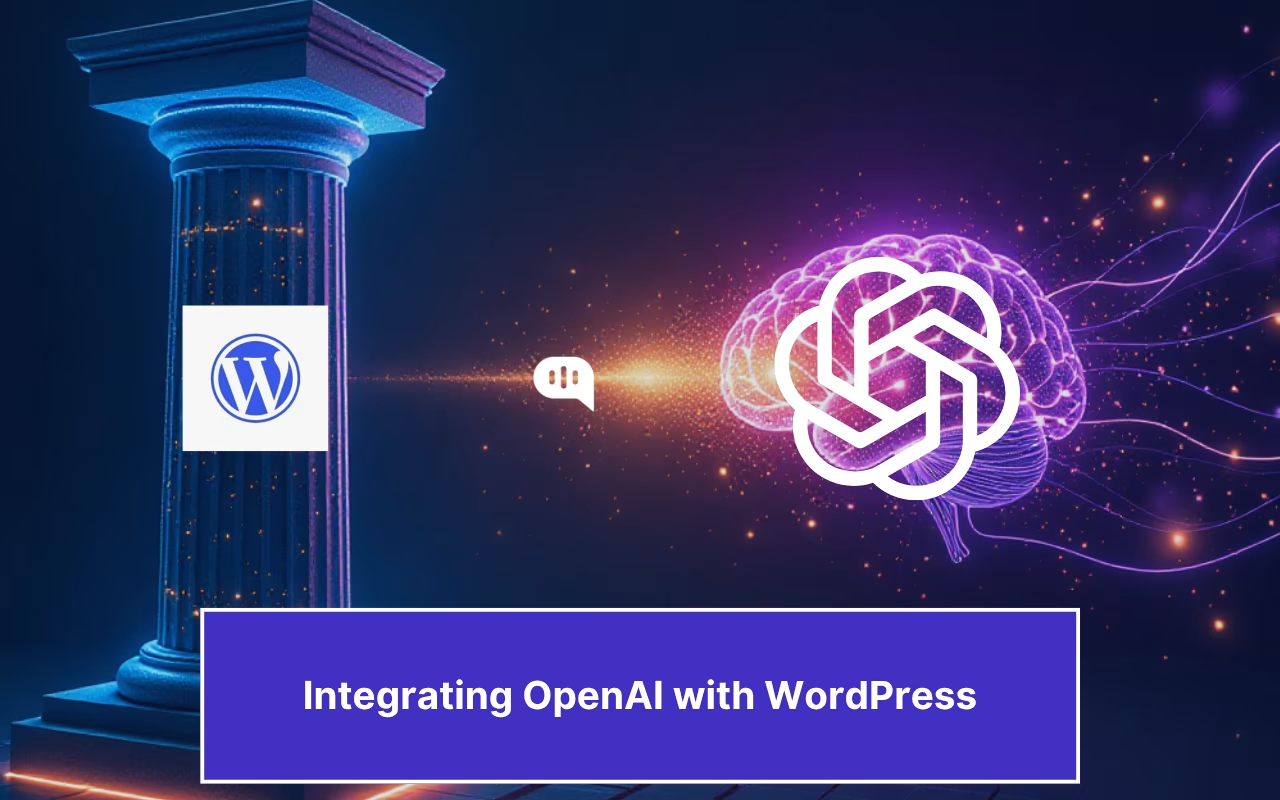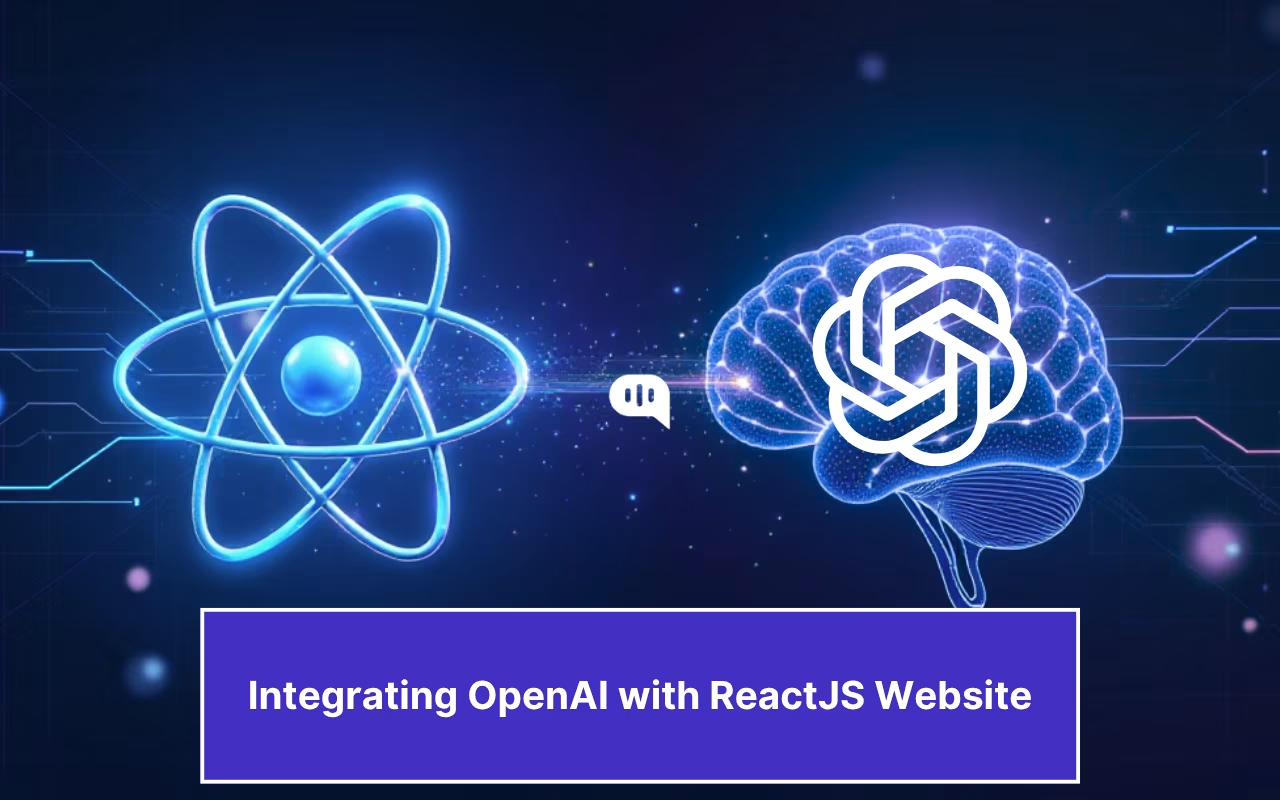Updated on April 1, 2025

Earlier times, email ticketing operated through manual processes. Agents would read emails, decide the priority, tag them, and assign tickets manually. This traditional email ticketing system worked well in small-scale operations but failed under the pressure of high-volume customer support.
Then, AI became the turning point. AI adoption will break through personalizing and marketing strategy, with over 70% of brands agreeing. Modern AI email ticketing systems view emails with the help of the latest algorithms to deduce intent and sentiment and decide whether to automate or escalate.
This article examines the shift from traditional to AI-powered email ticketing services.
It covers:
- Why Does Your Support Team Need an AI-powered Email Ticketing System?
- What are the Challenges of Traditional Email Ticketing Software?
- What is the Impact of AI-Powered Email Ticketing Systems on Support Teams?
- Why is AI Email Ticketing Just the Beginning? And,
- How to Implement an AI Email Ticketing System?
Understanding Email Ticketing Systems
Customer expectations have changed. They now demand:
- Immediate responses: Delays impact customer trust.
- Relevant, tailored solutions: Generic replies no longer suffice.
- 24/7 availability: Businesses operate across time zones and digital platforms.
An AI email ticketing system transforms every customer email into a manageable task or “ticket.” Each ticket carries a unique identifier and contains the complete context of the customer query. These systems:
- Automatically assign tickets to relevant agents or departments.
- Provide visibility into ticket progress.
- Track SLAs and ensure timely responses.
- Maintain complete records of interactions for future reference.
“Making your customers wait sends the message that you don’t respect them or their time.” Says Shep Hyken, CS and CX Expert
Challenges of Traditional Email Ticketing Systems

Traditional email ticketing systems were designed for a different time. That is, when customer expectations were lower and support volumes were manageable. Organizations currently encounter multiple limitations within their systems, which hurts customer satisfaction and reduces team performance.
Lack of Notes and Summarization Features
The majority of traditional ticketing platforms lack built-in intelligent summarization functionality. Customers are challenged to read complete messaging sequences so that support agents can grasp their problems. Dedicated teams spend excessive time, and this practice lengthens delays.
Response Times
The use of human-operated processes results in optional mistakes. Increasing ticket volume creates problems for teams since they struggle to manage priorities. Thus, important issues become harder to identify or completely escape notice. When businesses operate without automation, their response speeds become slower, causing Service Level Agreement failures and dissatisfied customers.
Inflexibility and Inefficiency
Traditional systems follow rigid workflows. Team members must develop temporary solutions since a ticket might not meet their pre-established procedures. The process execution duration becomes longer while operational efficiency decreases. These tools lack the capability of AI systems to modify their operations when workflow needs and business requirements transform.

Bad Customer Experience
Using static forms and dropdown menus creates obstacles for customers as both elements affect their ability to provide accurate information about their problems. Complex submission processes and jargon-filled fields create barriers in the system. Users will experience a seamless process as AI systems handle the categorization tasks on backend systems.
Technical Difficulties
Many traditional systems rely on outdated infrastructure, which can lead to technical errors, downtime, or performance issues. This not only disrupts ticket management but also undermines customer trust.
Scalability
The increase in ticket numbers puts pressure on traditional systems as they cannot manage additional workloads effectively without increasing their agent staff. When platforms use manual sorting and tagging for operation, they must increase their workforce to scale up.
AI-Powered Email Ticketing Systems
Powered by machine learning and Natural Language Processing (NLP), it helps support teams operate faster, smarter, and at scale—without sacrificing accuracy or personalization.
How does it work? Let’s see.
How Does an AI-Powered Email Ticketing System Work?
Most AI-powered email ticketing systems follow a similar workflow:
- Receipt of Message: Standardized tickets emerge from collected messages within the system and remain easy to monitor and control.
- Natural Language Processing: The artificial intelligence system uses natural language processing to examine all message content to recognize problems, emergency levels, and user emotions. This evaluation makes the ticket response time and decision on the handling method possible.
- Machine Learning: Machine Learning technology evaluates the identified problem through historical data to make ticket classifications. The system caters to billing issues, technical breakdowns, and cancellation demands.
- Ticket Assignment: After classification, the AI directs tickets to agents who demonstrate expertise and can handle additional work. The efficient routing system helps to deliver prompt and precise assistance to customers.
- Improvements: The system gains knowledge with each contact it has. Through experience processing tickets, the system improves its capability to organize tickets and respond to them through learned outcomes and feedback data from earlier tickets.
What are the Core Capabilities of an AI-powered Email Ticketing System?
An AI email ticketing system uses these features to boost team operational efficiency and customer satisfaction:
- Automation & Task Management: Artificial intelligence systems use automation to sort and decrease manual ticket-processing activities. The system enables staff members to dedicate their time to tackling strategic matters.
- Intelligent Ticket Processing: The system automatically processes huge quantities of tickets at once so tickets can be speedily and correctly routed instead of manual sorting.
- Enhanced Customer Experience: A combination of faster and correct support with personalized solutions promotes customer satisfaction, building stronger customer relationships.
- Customization Capabilities: The system enables your company to adjust its support workflows through customization features, so your team can achieve higher speed through consistent operations.
- Resource Optimization: AI allocates agents across complex cases by automatically dealing with repetitive questions, which enables employees to concentrate on harder tasks that require human intervention.
- Omnichannel Integration: The same dashboard handles customer inquiries from emails, chats, and social media to ensure channel-independent customer interactions.
Let’s see how Appen, an AI data training company, benefited from this approach.

By implementing an AI-powered email ticketing system, Appen significantly improved support performance:
- Ticket resolution time dropped from two weeks to under 24 hours.
- CSAT scores improved by 10%.
- 80% of all tickets were resolved automatically by AI.
These outcomes were achieved by reducing manual handling at every stage.
Comparative Analysis: Traditional vs. AI-Powered Ticketing
To clearly understand the differences between the two models, here’s a side-by-side comparison of key attributes:
| Aspect | Traditional Ticketing | AI-Powered Ticketing |
| Response Time | Hours to days | Instant to a few hours |
| Resolution Time | Slower due to manual processing | Faster with Automation |
| Scalability | Requires hiring more agents | Handles large volumes automatically |
| Personalization | Basic, rule-based responses | AI-driven, contextual responses |
| Cost Efficiency | Higher due to manual workloads | Cost-saving through automation |
| Customer Satisfaction | Prone to delays and generic experiences | Higher satisfaction due to speed & accuracy |
Key Benefits of AI-Powered Ticketing Systems
To help us grasp the benefits of an AI-powered email ticketing system, here are a few high-order metrics and KPIs that such a system improves for a support team:
CSAT (Customer Satisfaction Score) Increased
It removes delays by routing tickets according to agent expertise and importance level. By automating repetitive queries for the Agents, they can focus on more complex high-value interactions. As a result, issues are resolved faster, communication is clearer, and customer experiences are more thoughtful. All of these are the key drivers of higher CSAT scores.
NRR (Net Revenue Retention) Increased & Churn Decreased
According to research, 86% of the customers will leave only after two or three bad service exchanges. An AI allows for accurate and consistent responses across touchpoints while reducing the risk of errors and slowing down the response. The longer that resolution times fall and the more experience customers have, the more likely they will stick around.
First Contact Resolution (FCR) Increased
Instead of determining where to start looking for the right support agent, AI systems intelligently assign tickets to the right support agent on the first assignment. Issues are aligned with the most qualified team member, which leads to customers always receiving relevant and effective solutions without unnecessary escalations and repetitive follow-ups. This increases the FCR rate, which is a critical metric in both operational efficiency and customer loyalty.
Employee Experience (EX) Improved
Support teams often face burnout due to repetitive tasks and limited problem-solving opportunities. This burden is eased by an AI-powered system, which automatically deals with common questions. As a result, agents can apply their skills to more engaging and meaningful work, leading to more job satisfaction and less turnover.
Scope of AI-Powered Ticketing Systems
The AI ticketing system is versatile and can be used in any industry and internal department. Common applications include:
1. IT & HR Helpdesks
With AI, you can automatically handle password resets, onboarding queries, and internal tech issues. This leads to improving internal efficiency and reducing response times. These systems aid internal teams in handling typical requests without manual triaging so the support staff can concentrate on more complex issues. As AI becomes a workplace staple, it’s notable that 83% of companies view AI as a top priority in their business plans.
2. Customer Support
This is the most widely adopted application of AI email ticketing. AI systems classify incoming queries, route them to the right agent, and even resolve basic FAQs instantly—without human intervention.
For example, uParcel is a courier and delivery service in Southeast Asia. Being in a highly competitive sector with dynamic customer expectations, uParcel aimed to stand out by offering proactive, efficient, and automated support, all without enlarging its support team.

By adopting Kommunicate’s AI-powered solution:
- 40% of all incoming conversations were managed by the AI chatbot.
- Average First Response Time dropped to just 87.9 seconds.
- Customer satisfaction improved through faster resolutions and always-on availability.

This showcases how AI can enhance operational speed, reduce agent workload, and deliver consistent support experiences at scale.
3. Facilities & Workplace Requests
Support requests related to maintenance, equipment access, or internal logistics can be automatically logged and assigned. AI ensures that such tickets are routed to the right personnel with minimal delay, improving workplace efficiency. With 77% of companies either using or exploring AI, internal automation like this is becoming standard.
4. E-commerce & Retail
The support system manages the seasonal ticket demand by maintaining customer inquiries about orders and handling returns and refunds with product support. Businesses must use automated communication to reduce support queue backlogs while keeping performance standards in place during sales peaks. Business owners recognize the vast potential of AI-based productivity growth as they believe 60% of AI tools will improve service efficiency in retail environments.
5. Healthcare & Financial Services
For sectors with strict compliance needs, AI offers reliable support routing and escalation. These systems help prioritize urgent queries, track resolution timelines, and ensure that customer interactions follow regulated workflows. This aligns with the finding that 79% of financial services firms view AI as critical to the industry’s future.
Now that you firmly understand the promise of AI-powered email ticketing in different domains, let’s talk about the future trends in this space.
Why AI Email Ticketing Is Just the Beginning

These developments are pushing the boundaries of what support teams can achieve with AI:
AI Tool Use
New AI systems perform active operations as well as automated responses.
- AI-Augmented Agents: Future platforms will support human agents by suggesting responses, summarising conversations, and predicting customer needs in real-time.
- Advanced AI Tools: New releases from OpenAI and Anthropic suggest these systems may soon perform basic troubleshooting tasks directly on the customer’s device. Thus, streamlining complex workflows.
Integration with AI Agents
Marketing solutions using ticketing systems now work alongside AI-powered analytic tools for extended agent-based processes.
- AI-Integrated Workflows: The systems can extract information from CRMs ERPs, and inventory systems to generate data-based accurate responses.
- Multi-Agent Collaboration: Multiple AI tools could perform sequential support roles by classifying the issue at the first step, followed by a follow-up stage until the final escalation point.
Predictive Customer Support
Proactive support is becoming a reality with AI’s pattern recognition and behavioral analysis capabilities.
- Predictive Support: AI can monitor user activity and detect irregularities before they become systemic issues.
- Advanced Personalization: By combining behavioral analytics with customer history, AI will craft highly personalized, human-like responses.
- Sentiment Analysis Evolution: Future systems will go beyond tone detection—spotting frustration, sarcasm, or urgency to escalate tickets more accurately.
Omnichannel Support
AI email ticketing systems are expanding to cover all major communication channels.
- Omnichannel Ticketing: These platforms can now manage conversations across email, chat apps, social media, and in-store systems—all from one place.
- Visual AI Capabilities: AI may soon interpret screenshots or images submitted by users, allowing for faster and more accurate resolution of visual or technical issues.

How to Transition from Traditional to AI-Powered Email Ticketing
Adopting an AI-powered ticketing system isn’t just a tool upgrade—it’s a shift in how your support operates. To make the transition smooth and scalable, here’s a practical roadmap designed to help your team move from traditional email ticketing to a modern AI-powered system.
1. Evaluate Your Organization’s Support Needs
Start by understanding where your traditional email ticketing setup is falling short:
- Map existing workflows: Identify bottlenecks in ticket handling, assignment, and response times.
- Review ticket data: Look at volume trends, repeated issues, and SLA breaches.
- Engage your team: Speak with support agents and managers to gather frontline feedback.
- Spot readiness signals: Common signs include slow ticket triaging, rising support volumes, or difficulty maintaining CSAT.
- List integration points: Note the tools—like CRMs, internal chat, or HR systems—that the new system must connect with.
2. Select the Right AI Ticketing Solution
Once your needs are clear, assess potential AI-powered platforms based on how well they can modernize your workflows:
- NLP & automation accuracy: Can the system understand user intent and handle categorization or routing with minimal errors?
- Integration compatibility: Ensure it connects with tools you already use (email platforms, HR systems, chat, knowledge bases).
- Customization flexibility: Look for workflow automation options and support for multilingual or branded responses.
- Scalability: The system should grow with your support volume—without requiring you to grow your team.
- Data privacy & compliance: Check for adherence to industry regulations, especially for healthcare, finance, or government.
- Reporting & insights: A strong analytics dashboard can highlight gaps and optimize resolution strategies over time.
3. Integrate with Existing Tools and Systems
AI-powered ticketing thrives when connected across your ecosystem. Focus on seamless integration with:
- Email and messaging platforms.
- ITSM or HRIS systems.
- Knowledge bases and internal wikis.
- Authentication and SSO tools.
- Collaboration platforms like Slack or Teams.
4. Train Your Team & Iterate on Workflows
Successful adoption depends on buy-in and adaptability. This step is all about people, not just the platform.
- Agent onboarding: Train agents to work alongside the AI, using it for triage, prioritization, and automated responses.
- End user awareness: Let employees or customers know how to use the system—when to type, when to escalate, and what to expect.
- Refine content: Review auto-responses, knowledge-based articles, and macros for tone, accuracy, and relevance.
- Create feedback loops: Use performance metrics and agent feedback to fine-tune how tickets are handled and where AI steps in.
- Update processes: As automation improves, redefine agent roles to focus more on complex queries and less on repetitive tasks.
Conclusion: From Reactive to Proactive Support
AI-powered email ticketing systems represent a significant leap from traditional support models. While the traditional email ticketing system served its purpose in managing basic customer queries, it lacks the speed, intelligence, and adaptability required in today’s dynamic business environment.
In contrast, AI elevates support from reactive problem-solving to proactive customer engagement. The result is faster resolutions, better customer satisfaction scores, and a support team equipped to scale without additional headcount.
Kommunicate’s AI-powered email ticketing service is designed to handle modern support demands. It helps businesses streamline workflows, boost CSAT, and deliver consistent, high-quality support experiences at scale.
To learn more about how Kommunicate can modernize your email support, visit the platform and explore the future of AI-driven customer service.
As the Head of Growth, Marketing & Sales, Yogesh is a dynamic and results-driven leader with over 10+ years of experience in strategic marketing, sales, and business development.





